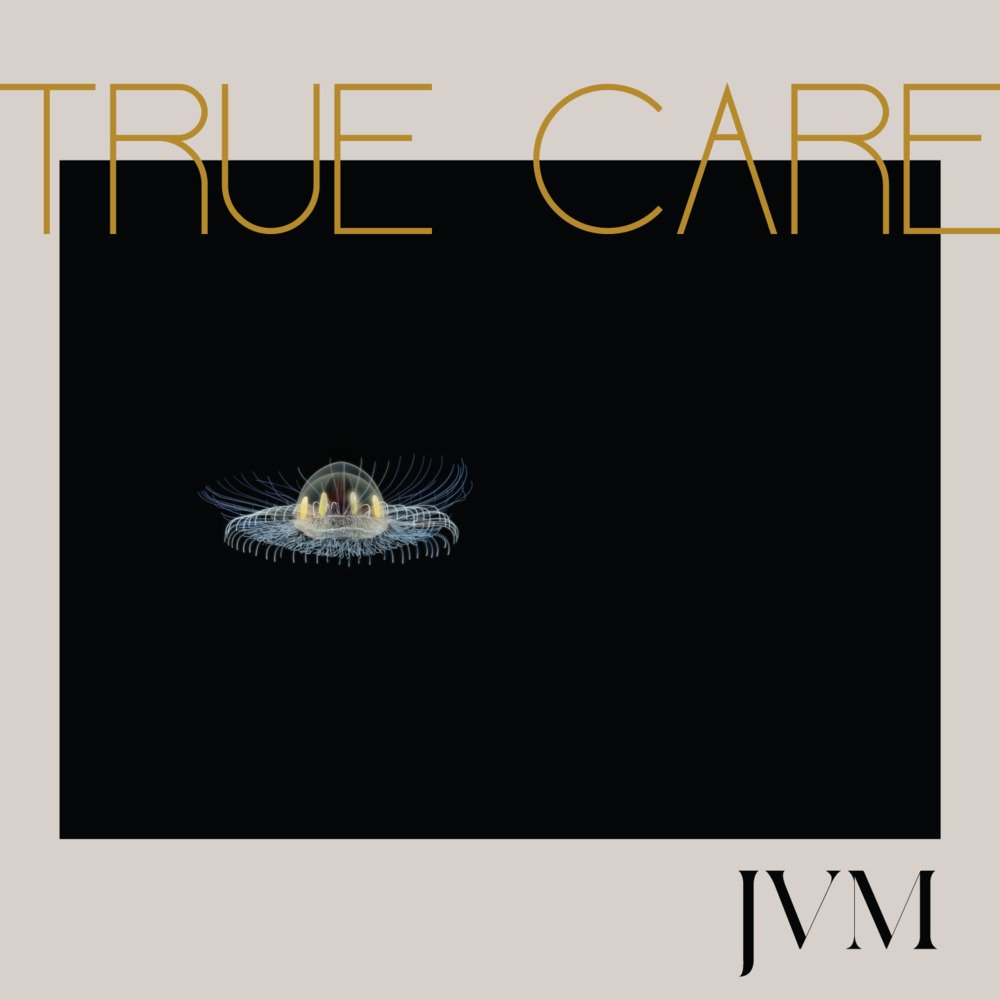James Vincent McMorrow is best defined as a living and breathing metamorphosis. Since his first release, Early in the Morning in 2010, an album that labelled him as a folk-leaning artist with a remarkable voice, every single record has shown us a different side of his music. True Care, his latest album released on May 25th, makes it hard for us to remember he once made music with an acoustic guitar. In fact, True Care didn’t only surprise people sonically—McMorrow announced True Care only one week before its release, and under one year after his previous album, We Move. He’s an artist who isn’t here to conform to anyone’s expectations, or even to purposely subvert them, he just does what he feels is the right thing for him to do at the time. And in a world full of artists who succumb to industry pressures and make music that sound the same just so they can hit the top of the charts, he is a breath of fresh air and a beacon of hope—music and artistry are alive, and McMorrow is one of the people who’s here to prove that to us. Comparable to Bon Iver and similar indie-acoustic artists, McMorrow has found a new sound in synthetic production. While not unheard of in the evolution of acoustic music McMorrow graces his creations with an individualistic personality, staking his territory as a one and only in an ever evolving music genre.
Atwood Magazine’s Nicole Almeida and Kelly Wynne, who reviewed True Care, had the chance to interview McMorrow about his career, evolution, and what he’s planning on releasing next (yes, he’s already thinking about album number 5). Here’s what he had to say.
MEET JAMES VINCENT MCMORROW
Atwood Magazine: What does True Care as a whole mean to you in terms of your artistry and current position in the music world?
James Vincent McMorrow: Honestly, I’m not really sure. I’m not sure I have ever stopped to take stock of my artistry or my hierarchical position. I like the trajectory and nuance of my career so far, I think the nature of it has certainly allowed me to approach a record like True Care the way I have, everything I’ve done up to this point has been done with a big following behind me, but not a huge intensity to match. It’s fairly unique, and I think unique is what was needed to make True Care. To make and release a record with no sense of a ‘plan’ in the modern musical context. I know the surprise release is done so much these days it’s becoming redundant, but I approached this record with honestly zero regard for anything other than making something I wanted to make, and sharing it in a way that felt as honest and unpretentious as is humanly possible.
What is the most inspiring influence when it comes to writing an album?
JVM: Is it cliché to say life?? Well I guess I’m cliché then! I got married a year ago, I’m at a point where I’ve achieved a lot, but there’s still so much more I have to dig into, My brain is equal parts optimism, paranoia, drive, confusion, fear, blind confidence. I look to capture all of that in the records. Sometimes I get closer to the goal than others, With True Care I felt as I was making it that I what I wanted to say at the outset, was still relatively intact at the end. That’s saying a lot.
Listen: “True Care” – James Vincent McMorrow
How would you describe your evolution as an artist?
JVM: Neccessary. People speak a lot about the evolution of my work, the changes. To me it’s not about a conscious evolution, to me it is the basic core structure of any career, whether creative or not. If you’re not getting better, then you’re not standing still, you’re sliding backwards. The place we start, listen if as a musician you end up within a million miles of that place, then to my mind you’re doing it wrong. I started with an acoustic guitar because it’s what I had, no money, just some shitty instruments. I pushed it outwards on Post Tropical, We Move, and True Care. Each time is different because circumstance is different, you learn more things that you want to put into practice. Watching 85 and Two Inch Punch sample and manipulate my ideas on We Move, that blew my mind, it’s a skill I wanted to learn, I learnt from masters, and with True Care my intent was to explore that world on my own, so I did. People also speak a lot about my experimentation, and there’s this sometime myopic desire to lump all the musicians in the world making ‘experimental’ music together in the same conversation. It seems silly. Should you not make the things you’re compelled to make because others in the world want to use those sounds too? Should 2 guitar players not make the same music because they both like guitar music? Evolution takes you where it takes you.

Your instrumentals are many times soft and soothing. What draws you to the mellow, reflective sound?
JVM: My voice fits better over certain things, that’s an important aspect to it all. I never liked how my voice fit over acoustic guitars, to me it sounds better over wider, less attacky sounds. As soon as I heard myself sing over synths it was game over, I could manipulate my vocal so much better and with so much more confidence, it made me a better singer. Plus then when you use those sharp sounds it’s all the more striking. All things in moderation, it’s light and shade.
This album was filled with more experimental sounds, many bordering on electronic. What was the decision behind moving in a more synthetic direction?
JVM: I don’t perceive those musical distinctions. Not to sound pretentious, it’s genuinely always the way I’ve felt. Electronic to me is my laptop, therefore everything I’ve ever created has been electronic. I know there are more overt sounds that exist in the electronic musical landscape, and as I’ve dug deeper into production my mind has moved more towards them, 808s, analog synthesis, But ultimately it’s about what a song calls for. I never have less than 10 versions of any song I’ve ever written. People might assume I just sit with these sounds and hit record, but I also have piano versions, guitar versions, different tempos, different motifs, when you hit the spot you know. With True Care it was just a more limited set of tools, and yeah for sure there are electronic sounds in the mix, but if you break it down, on the first 3 songs it’s 100% all live organic played stuff, no samples.
You released and annotated True Care’s lyrics on Genius before releasing the album. Why was it important to you that people read the album before they got to experience it as a whole?
JVM: With Post Tropical I remember consciously not releasing the lyrics, I felt kind of belligerent about it. To me that record was about all of its parts, and I know people gravitate towards my words first, so I wanted to negate that instinct. With True Care it felt the opposite. To a degree they are connected albums, PT and True Care. I just thought it was an interesting thought experiment too, for people to read words before they heard songs, to paint those pictures with their minds. Beck did that song book album a few years back and I thought that was an amazing idea, give people the book, let them create their own album without a template in place.
We Move and True Care have both been incredible steps forward for you in terms of being honest and open with your music. Why do you think you decided to be this transparent at this point in your career, and how do you think that reflected in the sonic aspects your music?
JVM: Transparency is tough, sometimes what seems transparent is in fact just another facade. To me transparency and honesty isn’t an overt literal lyric, it’s acceptance of the song arriving in whatever manner it wants to arrive, and resisting the instinct to fine tune it, to make it more refined or more ‘artistic’. Sometimes transparency is a super fucking obscure lyric, sometimes it’s a simple and honest one, you’re never going to get just one of those things from me, and you never will.

True Care’s release was unexpected and fast and all of a sudden you were playing the whole album at a string of shows in America and back home in the UK. What did you think of the reaction to the album both online and live?
JVM: I can honestly say I’ve never read a single thing that anyone has said to me about my work. People that work for me make me aware of things, and it’s not that I only seek out the good while ignoring the bad. But I just don’t want to get caught up in that game, it’s a losing one, next thing you know you’re adjusting your music based on what Pitchfork thinks of you. No disrespect to them, but I’ve been down dark holes before where people told me I wasn’t going to cut it as a musician because I didn’t want to make one kind of mono syllabic music. If I’d listened to that I would have made four Early in the Mornings, and who would give a fuck about that? Not me. I love that record, but it’s a stepping stone on a long long road, The only way to get to the next stone is to look forward and ignore the ones behind you.
The live show was built out of my desire to present this record in a compelling way. Also I carpeted the internet with interviews and content when We Move came out, no one would want to hear me shite on again so soon about another record, so why not make the album it’s own press and promotion. seemed simple to me. And people really understood it. I was worried that they wouldn’t, that they’d be confused by it …”oh you’re opening for yourself by playing a full album I’ve barely heard!?”… but they seemed to get it.
We Move’s aesthetic was light and blue and calming, while True Care’s aesthetic is dark and intriguing and completely different. How do you choose the colour scheme and artwork for your albums?
JVM: The artwork is such a symbiotic thing to me, a lot of times I have the artwork before the record. I certainly did with We Move. That album felt like light blues and light pinks, pastels, washed out, hazy. True Care felt like the bottom of the ocean, this alien beautiful jellyfish swimming around at the bottom, creating it’s own light.
You’ve broken all the rules in terms of an album release, floated between genres, were your own support act at recent shows, and been incredibly transparent and open with your music. It seems like you’ve done it all. What can we expect from you next?
JVM: The next record to me feels like the one. I believe in all my work, all my decisions, all of them are those stepping stones to the next thing. The next stone feels like a substantial one. To me I’ve felt like I was operating with a hand tied behind my back this entire time, I love the labels I’ve been on, but financially I’ve been trying to do a lot with a little, not that money is the factor in creating great works, but at the same time, when you’re ambitious, you need that money to help supplement your ideas. I’m at a point in my life now where I am clear of all contracts I signed when I was starting, I have a career and a platform that was built organically and is substantial, I’ve never been the press and reviews guy, it’s been hand to hand, and I know what it means to those people who get me, so I want to make a record that gives back every ounce that has been given to me. I have it in my head, and it’s fucking incredible. Not in some narcissistic bullshit way, I know this could all end at any moment for me, so I’m intending to create something now that puts it all out there on the line. We’ll see next year what happens with that. Also I’m going to sleep. Sleep is amazing, I’ve heard.
— — — —

Connect with James Vincent McMorrow on
Facebook, Twitter, Instagram
Discover more new music at Atwood Magazine
Cover © Sarah Doyle
Purchase True Care here or stream it in full here.
:: James Vincent McMorrow Tour 2017 ::
10/06 – Austin City Limits Festival – Austin, TX
10/07 – Kessler Theatre – Dallas, TX
10/08 – Heights Theatre – Houston, TX
10/12 – Scoot Inn – Austin, TX
10/13 – Austin City Limits Festival – Austin, TX
10/16 – SPACE – Evanston, IL








